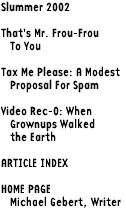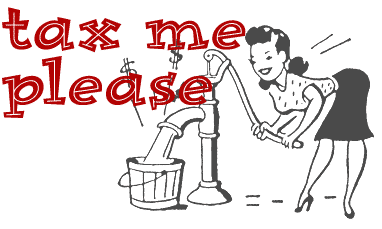


The result is the stifling of a once- promising new advertising medium, which could have set new standards for personalization and effectiveness—and consumer acceptance. But I have a solution: tax it.
Bear with me here. What makes spam possible is simply that it’s free. You buy a CD-ROM with 5 million addresses on it (only 3 million of which are already out of date), and send the exact same thing to every last one of them. Get a .0001% response and it pays out, so the things that normally restrain junk mailers—paper and postage costs, the fear of trashing a brand image—just don’t apply.
A small tax on email (say, a penny per address sent to) wouldn’t affect the average person much; you probably pay more than that for each local call you make, and I bet you never even noticed. But a spammer suddenly looking at a tax bill of $50,000 would instantly have to become at least as selective as, say, First USA in who he mails to. He’d have to learn a thing or two about targeting, and good advertising, and how to be a real marketer—instead of a pest.
So no more communication without taxation! After all, short of government intervention there’s only one hope for the medium: that mainstream brands and agencies actually start creating emails exciting and daring enough that people want to open them—and don’t even consider them in the same category as spam.